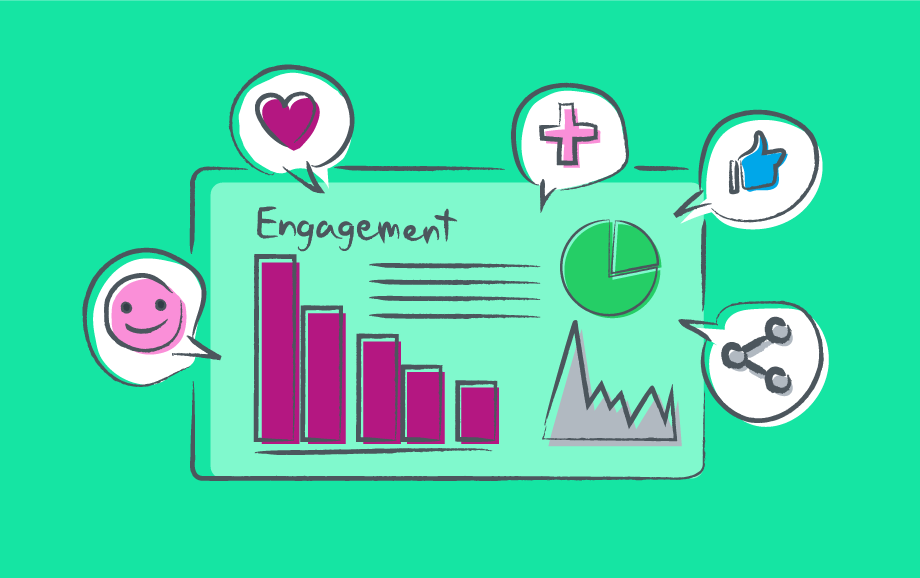In today’s digital age, social media has become an integral part of our lives, both personally and professionally. For businesses and content creators, understanding the impact and effectiveness of their social media efforts is crucial. This is where social media engagement metrics come into play. In this article, we will delve into the world of social media engagement metrics, exploring what they are, why they matter, and how you can utilize them to enhance your online presence.
What Are Social Media Engagement Metrics?

Social media engagement metrics encompass a range of statistics that measure the interactions users have with your content. These interactions include likes, shares, comments, clicks, and more. Essentially, engagement metrics offer a snapshot of how well your content is capturing your audience’s attention and encouraging them to take action.
Why Do Social Media Engagement Metrics Matter?
Understanding social engagement metrics goes beyond vanity metrics like follower counts. They provide actionable insights into your content’s performance, helping you refine your strategy, enhance your content, and foster stronger connections with your audience. High engagement often translates to improved brand loyalty, increased website traffic, and higher conversion rates.
Key Social Media Engagement Metrics to Track
1. Likes, Shares, and Comments: The Basics
These fundamental metrics gauge your content’s initial impact. Likes indicate appreciation, shares extend your reach, and comments reflect engagement depth.
2. Click-Through Rate (CTR): Gauging Interest
CTR measures the effectiveness of your call to action. A higher CTR signifies compelling content that prompts users to explore further.
3. Conversion Rate: From Engagement to Action
The conversion rate tracks how many engaged users take the desired action, such as signing up or making a purchase.
4. Reach and Impressions: Extending Your Reach
Reach quantifies unique viewers, while impressions tally overall views. A high reach coupled with significant impressions indicates effective content distribution.
5. Follower Growth Rate: Expanding Your Audience
This metric shows how fast your follower base is growing, indicating the overall health of your social media strategy.
6. Hashtag Performance: Connecting Trends and Topics
Analyzing hashtag performance sheds light on trending topics and how well your content aligns with popular conversations.
Tools for Measuring Social Media Engagement Metrics
1. Native Platform Insights
Most social media platforms offer built-in analytics, providing data on engagement metrics specific to each platform.
2. Third-Party Analytics Tools
Various tools like Hootsuite and Buffer offer in-depth analytics across multiple platforms, streamlining metric tracking.
3. Google Analytics Integration
Integrate Google Analytics to gain a holistic view of how social media traffic contributes to your website’s overall performance.
Interpreting and Utilizing Metrics to Improve Engagement
1. Setting Benchmarks and Goals
Establish clear benchmarks and goals based on your historical data to measure future success.
2. Identifying High-Performing Content
Analyze metrics to identify content that resonates most with your audience, then create similar content to maintain engagement.
3. Optimizing Posting Times and Frequency
Use engagement data to determine the best times and frequency for posting, ensuring maximum visibility.
4. Engaging with Your Audience
Respond to comments, messages, and mentions promptly to foster a sense of community and encourage ongoing engagement.
Staying Updated with Evolving Metrics
As social media platforms evolve, so do engagement metrics. Stay updated with these changes to adapt your strategy accordingly.
The Future of Social Media Engagement Metrics
The future promises even more sophisticated metrics, including emotional analysis and augmented reality engagement tracking.
Conclusion
In the digital landscape, social engagement metrics serve as a compass, guiding you toward a successful online journey. By understanding and harnessing these metrics, you can forge deeper connections with your audience, elevate your brand, and navigate the ever-changing seas of social media with confidence.
For those looking to dive deeper into the world of social media engagement metrics and enhance their online presence, AIM Technologies offers a comprehensive solution. Request a demo today and discover how our cutting-edge tools can empower your digital strategy.
FAQs
What’s the primary benefit of tracking social engagement metrics?
- Tracking these metrics helps you measure the effectiveness of your content and refine your strategy to improve audience engagement.
Can engagement metrics help in converting followers into customers?
- Yes, analyzing these metrics allows you to create targeted content that resonates with your audience, increasing the likelihood of conversion.
Are likes more important than comments for engagement?
- Both are valuable. Likes show appreciation, while comments indicate deeper engagement and provide opportunities for interaction.
How can I keep up with the changing landscape of social media metrics?
- Stay informed by following industry news, attending webinars, and engaging with analytics experts.
What role might AI play in the future of engagement metrics?
- AI could provide more nuanced insights by analyzing user sentiment and predicting trends, enhancing engagement strategies.




